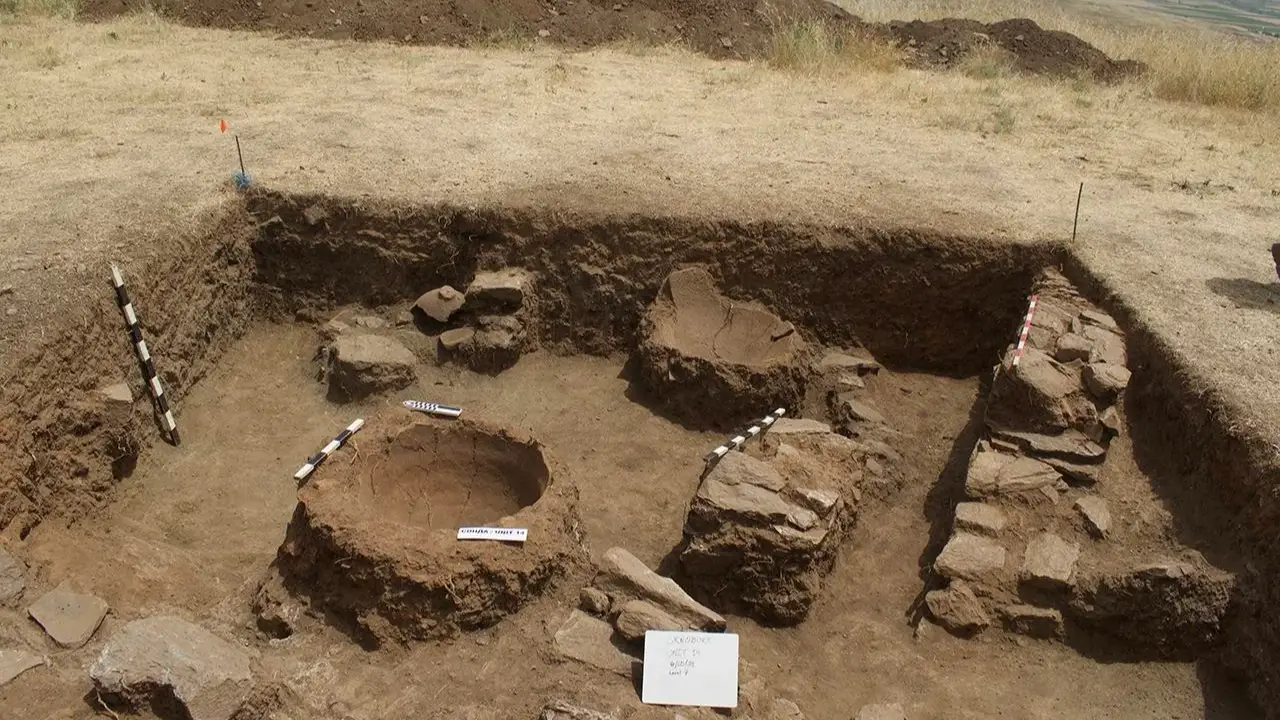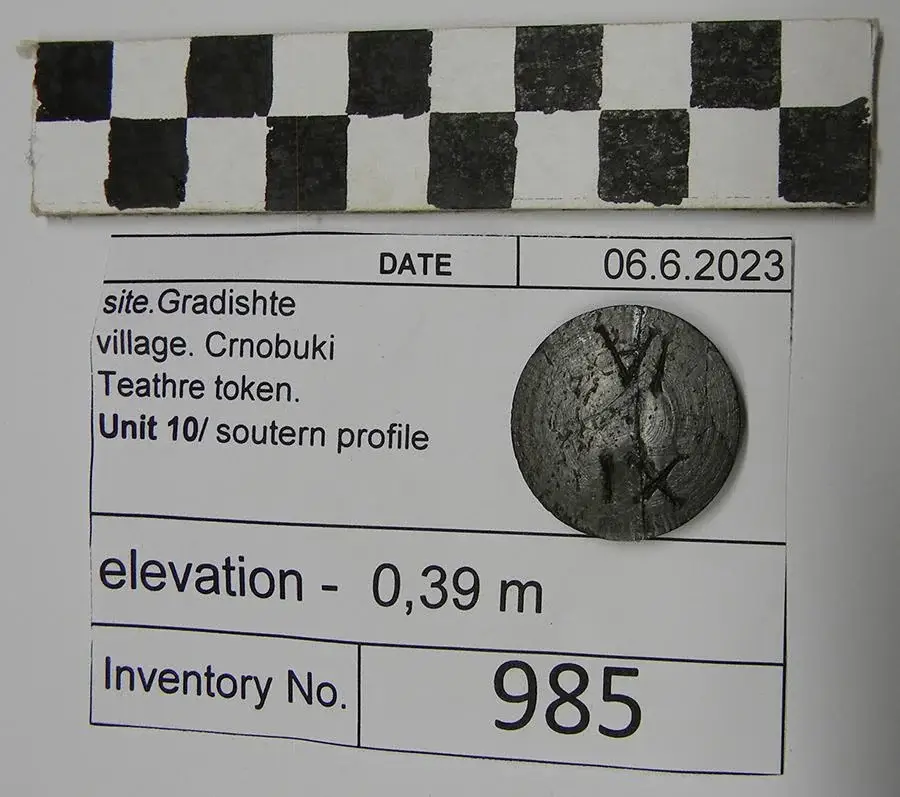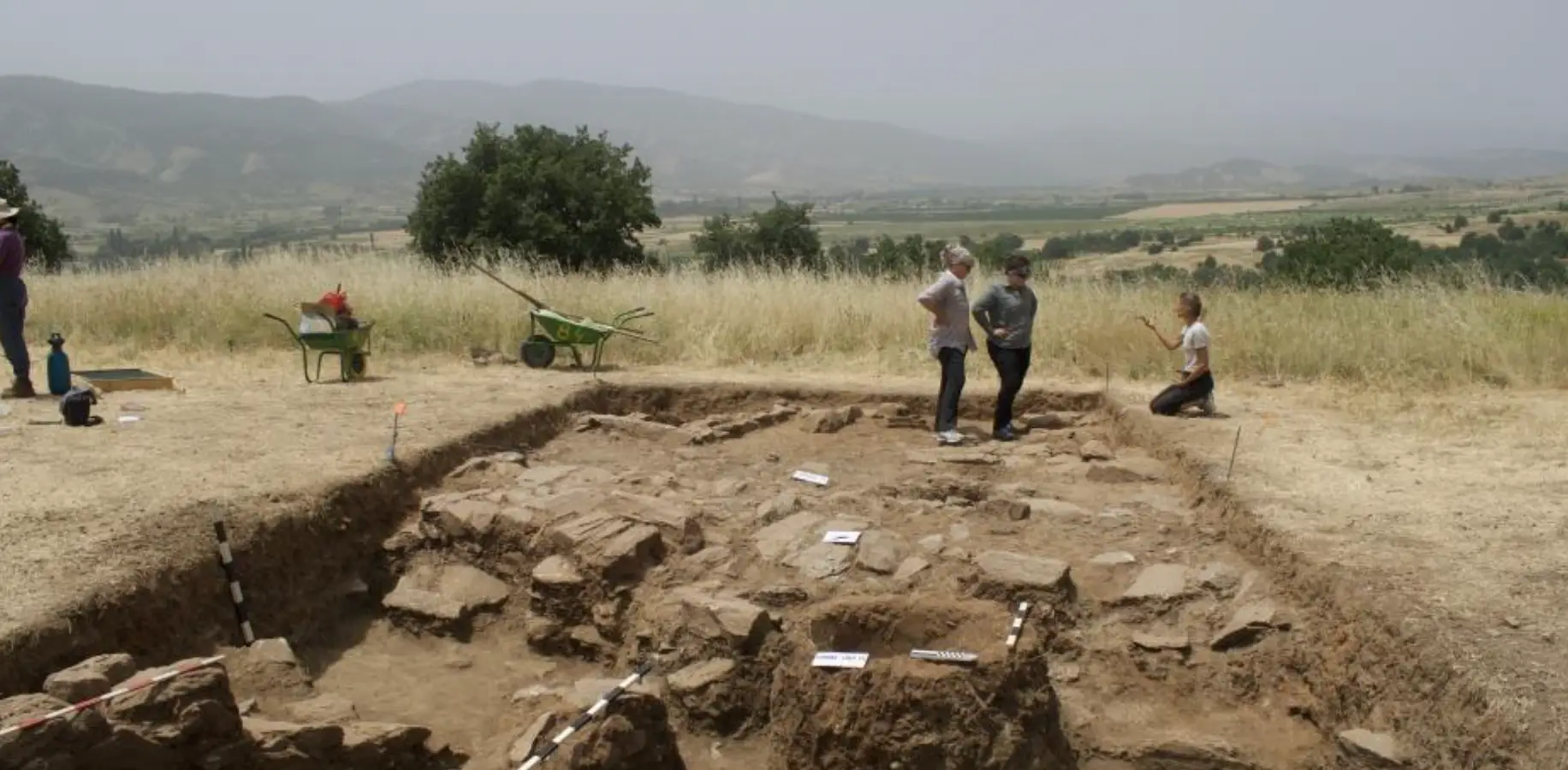
Archaeologists have made a ‘once in a lifetime discovery’ in a shocking new find.
The scientists have revealed that they believe they have actually discovered the capital city of an ancient European civilisation.
The find was made due to archaeological investigations into a set of North Macedonian ruins which, prior to this discovery, were simply thought to be of a military outpost to defend against the Romans.
There has been ongoing excavation since the site was discovered 15 years ago by Macedonia’s Institute and Museum–Bitola and the California State Polytechnic University in Humboldt.
Advert
Two years ago, however, in 2023, it was decided that the team looking into the ruins would go deeper, using ground-penetrating radar amongst other technology.
This led the researchers to uncover a ‘sprawling city’, including a theatre, a seven-acre acropolis, and a coin which dated the region.

The coin was minted between 325 and 323 BCE, and helped date the findings to the reign of Alexander the Great.
Researchers believed that what they have uncovered is actually the city of Lyncus, the capital city of the Kingdom of Lyncestis.
The kingdom was an autonomous region in Northern Macedonia until it was conquered in 358 BCE by Phillip II, Alexander the Great’s father.
This predated the Roman Empire by centuries ‘or even millennia’ according to archaeologists on the project.
Due to additional findings made by the researchers it is believed that humans lived in the city as far back as the Bronze age, marking it sometime between 3,300-1,200 BCE.
Engin Nasuh, curator-advisor archaeologist at the National Institute and Museum–Bitola said of the discovery and the ancient Macedonian state: “We’re only beginning to scratch the surface of what we can learn about this period.

“It is a civilization that played a major role in today's understanding of the world and the desire to connect different civilizations and cultures."
He went on to add: “All these studies are just a small part of the research of early European civilizations. I see it as a large mosaic, and our studies are just a few pebbles in that mosaic.
“With each subsequent study, a new pebble is placed, until one day we get the entire picture.”
Nick Angeloff, Cal Poly Humboldt Anthropology professor and archaeologist said: “This discovery is significant. It highlights the complex networks and power structures of ancient Macedonia, especially given the city's location along trade routes to Constantinople.”
He finally added historical context, saying: “It’s even possible that historical figures like Octavian and Agrippa passed through the area on their way to confront Cleopatra and Mark Antony at the Battle of Actium.”
The archaeological site of Gradishte was the location of the discovery, near to a North Macedonian village Crnobuki.
Topics: Archaeology, History